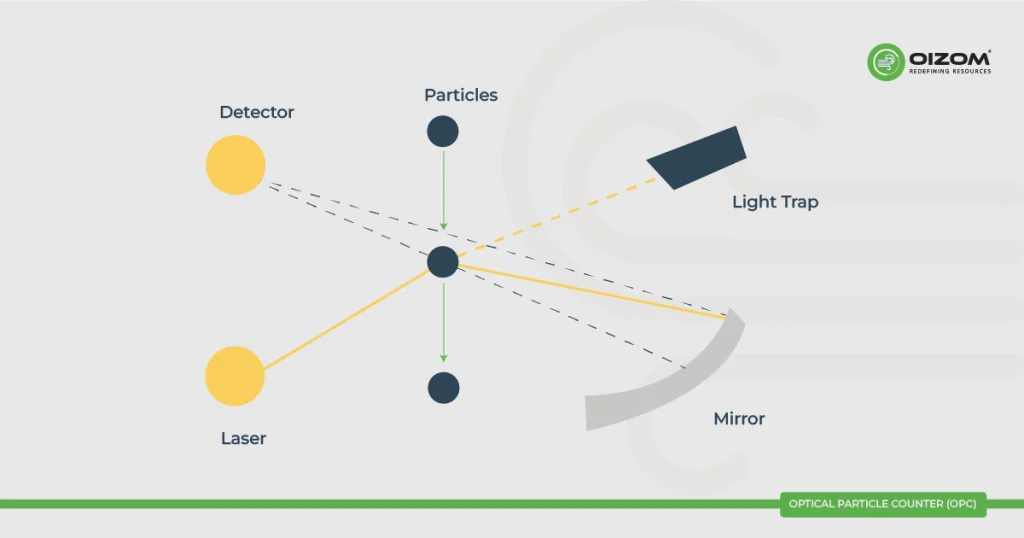Find the terms by letter
OPC
Definition
An optical particle counter (OPC) detects and sizes particles by measuring the amount of light scattered by individual particles as they pass through a beam of light.
Definition and Description
An Optical Particle Counter (OPC) is an analytical instrument used to quantify and size particles suspended in a gas or liquid by employing optical sensing technology. It operates based on the principle of light scattering or light blocking. In a typical OPC, a sample of air or liquid containing particles is introduced into the instrument’s measurement chamber, where it encounters a light source, such as a laser or LED. As particles pass through the beam of light, they scatter or block some of the light, and the instrument’s detector measures these changes. By analyzing the scattered or blocked light, the OPC can determine the number, size distribution, and concentration of particles, providing valuable information for applications like air quality monitoring, aerosol research, and particle characterization.



